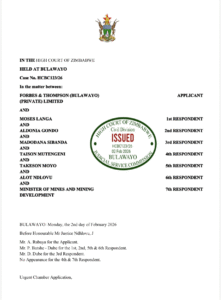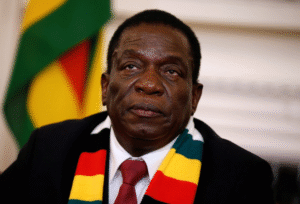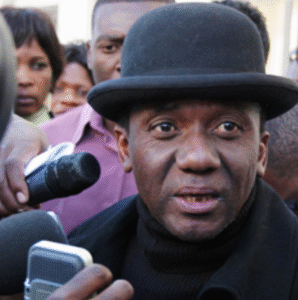CONTROVERSY STRIKES AS GOLD BARON JOINS ZIMBABWE’S MINING REGULATORY COMMITTEE

In a move that has sparked widespread debate and concern, Pedzai “Scott” Sakupwanya, a well-known figure in the gold mining industry and affiliate of the ruling Zanu PF party, has been appointed to Zimbabwe’s parliamentary portfolio committee on Mines and Mineral Development. This committee plays a critical role in the oversight and monitoring of the country’s mining sector, which is a linchpin of the national economy. However, Sakupwanya’s new role has been met with fierce opposition from civil society organizations, igniting a firestorm of criticism over potential conflicts of interest and the implications for environmental and social governance in the mining sector.
At the heart of the controversy is Sakupwanya’s deep entrenchment in the gold mining industry, specifically in Penhalonga, where his operations have been scrutinized for harmful environmental and social practices. Critics argue that his position on the committee could lead to biased oversight and decisions that favor private interests over the public good, citing concerns over land degradation, water pollution, and the disregard for local community health and safety.
The outcry from civil society organizations underscores the inherent risks posed by allowing individuals with vested interests in the mining sector to regulate it. They fear that Sakupwanya’s influence could undermine efforts to hold mining companies accountable for their actions, setting a dangerous precedent that erodes public trust in the institutions tasked with protecting Zimbabwe’s natural resources and the wellbeing of its populace.
Zimbabwe’s reliance on mining for foreign exchange and employment makes the ethical and sustainable management of this sector crucial for the country’s economy. Sakupwanya’s appointment raises broader questions about governance, transparency, and the alignment of economic policies with environmental and social responsibilities. This development could potentially impact Zimbabwe’s efforts to attract foreign investment, as the integrity of its regulatory framework and the credibility of its oversight bodies are critical in assuring investors of a responsible and safe business environment.
The controversy calls for a reassessment of the appointment processes and criteria for key oversight committees by the Zimbabwean government and parliamentary leadership. It highlights the need for mechanisms that safeguard against conflicts of interest, ensuring that the mining sector is managed in a way that promotes public interest, sustainability, and equity.
As civil society voices its concerns, the overarching message is clear: the integrity of Zimbabwe’s mining oversight must be upheld to ensure that the nation can fully benefit from its natural resources while preserving its environmental heritage and ensuring the welfare of its communities. The debate surrounding Sakupwanya’s appointment serves as a critical wake-up call, emphasizing the importance of rigorous standards and practices in the governance of Zimbabwe’s mining sector. The situation remains a pivotal moment for the country, as it grapples with the challenges of balancing economic development with environmental stewardship and social responsibility.





